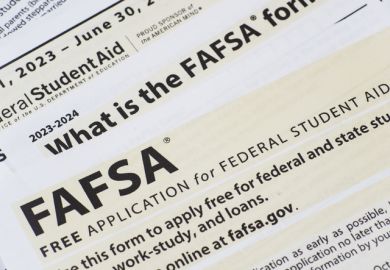For ordinary students, a preening, self-obsessed lecturer is bad news. But for their narcissistic, selfie-taking classmates, having a similarly self-regarding professor actually boosts grades, according to research.
This was the alarming finding of a study of about 400 business undergraduates in the US that looked at the impact of professorial narcissism on student performance.
It also warned that business schools are particular hotbeds of self-obsession, where narcissists flourish in an environment where “assertiveness, talkativeness, creativity, and overt confidence are encouraged and rewarded”.
The research, carried out by management and psychology academics at Appalachian State University in North Carolina, tested levels of student and faculty narcissism at an unnamed state university in the southeastern US by asking whether they believed statements such as “I can usually talk my way out of anything”.
They found that “less narcissistic students struggled in classes with more narcissistic faculty, receiving lower grades [and] perceiving higher class difficulty”.
However, more narcissistic students “thrived” with similarly self-obsessed instructors, found the study, titled “Faculty narcissism and student outcomes in business higher education: a student-faculty fit analysis”, and recently published in the International Journal of Management Education. They received better grades and found classes easier.
Excessively self-centered faculty even offer a “potential model for future behaviour” to similarly inclined students, the paper warns.
Universities need to take seriously the danger of narcissistic faculty and their impact on students, the authors warn. The paper suggests offering business school academics cognitive behavioural therapy to make them less narcissistic, and making selection committees more aware of the damage it can do to students.
It also asks: “As millennials enter the faculty ranks, will they be disproportionately narcissistic?”
More broadly, studies showing rising levels of narcissism in US university students may also “raise concerns” for higher education, the paper suggests, because students may expect special treatment from academics, be “hypersensitive” to criticism and be “poor team players”.
Previously published research by authors of the paper has also found that business students were more narcissistic than those in other disciplines.
Given that narcissism is associated with white-collar crime, aggression, distorted judgements of ability, using up common resources and risky decision-making, it could even affect the economy.
“Overall, rising levels of narcissism present significant challenges for the business community,” the paper predicts.
If the presence of narcissistic faculty leads to “higher grades for more narcissistic students and graduates, this may be especially worrisome for the business community due to the dysfunctional work environments narcissists tend to create”, it warns.
POSTSCRIPT:
Print headline: Like recognises like in academy
Register to continue
Why register?
- Registration is free and only takes a moment
- Once registered, you can read 3 articles a month
- Sign up for our newsletter
Subscribe
Or subscribe for unlimited access to:
- Unlimited access to news, views, insights & reviews
- Digital editions
- Digital access to THE’s university and college rankings analysis
Already registered or a current subscriber? Login





